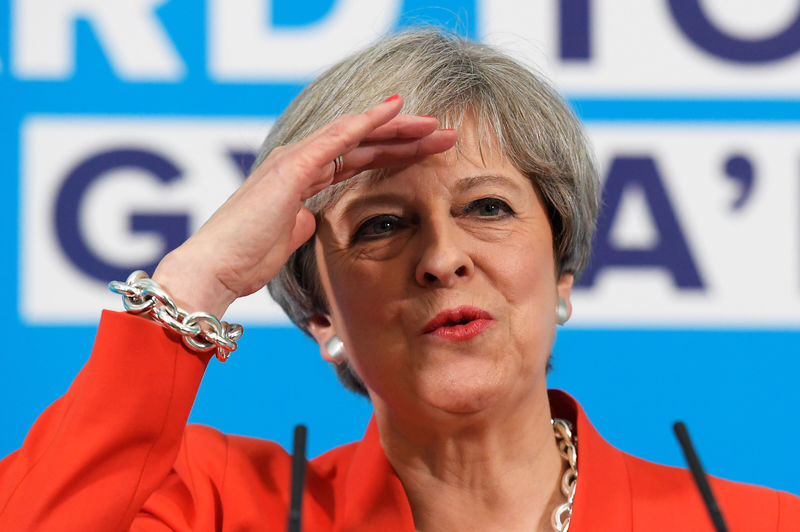LONDON (Reuters) - Britain's Labour Party has cut the lead of Prime Minister Theresa May's Conservatives to 14 points from 20 points a week ago, according to an ICM poll which showed Labour regaining ground in some of its most closely contested voting districts.
Ahead of the June 8 election, the poll for the Guardian newspaper said support for the ruling Conservatives had fallen by 1 percentage point to 47 percent, while Labour jumped 5 points to 33 percent.
Polls had put May's Conservatives on course for a big victory after she called the snap election in April but her lead has slipped in recent days after both sides published their pre-election policy plans, known as the manifesto.
May was forced on Monday to backtrack on one of the most striking pledges after voters reacted coldly to her proposal to force elderly people to may more for their social care.
"After the delivery of the party manifestos, polling over the weekend has indicated a resurgent, if still rather distant Labour Party," ICM director Martin Boon said.
"The Tories have had a flat out bad weekend ... but we've seen short term effects like this before, and we've seen them dissipate. This is still a massive 14-point (Conservative) lead, and still their election to throw away."
ICM said it was almost a year since its polling had put Labour on 33 percent of the vote, putting the improvement down to gains in its marginal political districts where it now trails by 3 points compared with an earlier deficit of 17-20 points.
ICM cited analysis group Electoral Calculus as saying the predicted share of the vote would lead to the Conservatives holding a 134 seat majority in the 650-seat parliament.
May's predecessor David Cameron won a 12-seat majority in 2015.
The poll showed support for the Liberal Democrats fell one point to 9 percent, while the UK Independence Party fell two points to 4 percent, the lowest share ICM has ever allocated to the party which played a key role in the vote to leave the EU.
ICM, which interviewed 2,004 adults online between May 19 and 21, said the weak UKIP showing was partly down to changes in its methodology.

(The story has been refiled to add dropped word "to" in headline)